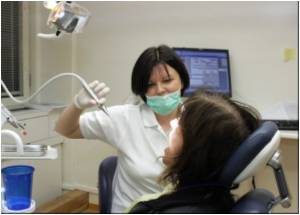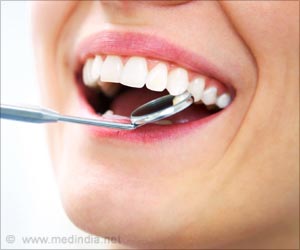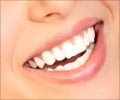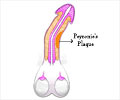Toothpaste that reduces dental plaque, also seen to significantly lower systemic inflammation, as assessed by measurement of C – Reactive Protein (CRP) levels.
Highlights
- Dental plaque is a sticky coating of bacteria on the teeth and gums.
- In the mouth, plaque is responsible for cavity formation and gum diseases.
- Dental plaque is also associated with systemic inflammation.
- Poor dental health may cause heart attacks and strokes.
- Reducing plaque formation will also decrease systemic inflammation.
Details of the Trial
In this trial, all subjects randomly chosen, were told to follow the same brushing protocol, and were given a 60-day supply of either Plaque HD® toothpaste, that could identify plaque, or a similar non-plaque identifying placebo toothpaste.To diagnose dental plaque, all the participants employed a fluorescein mouthwash, and intraoral images were taken under black light imaging. To assess systemic inflammation, hs-CRP (high-sensitivity C- reactive protein), levels were estimated by an independent lab employing an enzyme linked immunosorbent assay.
Results of the Trial
The study revealed that using Plaque HD® significantly reduced dental plaque formation as well as systemic inflammation."While the findings on reducing dental plaque extend a previous observation, the findings on decreasing inflammation are new and novel," said Charles H. Hennekens, M.D., senior author and Sir Richard Doll Professor, senior academic advisor to the dean in the Charles E. Schmidt College of Medicine at Florida Atlantic University.
How Plaque HD® Reduces Plaque
Plaque HD® is the first toothpaste that shows up plaque so that it can be easily removed by targeted brushing. Additionally, the product's proprietary formulation is composed of a unique blend and concentration of cleaning agents that loosen the core of the plaque structure, making it easier for the person to visualize and more effectively get rid of the plaque.C-Reactive Protein (CRP) and Its Role in Systemic Inflammation
CRP is an acute phase protein synthesized in the liver. Levels of CRP increase in plasma during infection and inflammatory states and is considered one of the golden markers of inflammation. CRP is formed in response to a wide variety of inflammatory stimuli, such as heat, trauma, hypoxia and infection.- CRP activates complement which plays an important role in the immune response.
- It also promotes phagocytosis of various pathogens.
- It promotes the generation of pro-inflammatory cytokines that increase the immune response to various stimuli.
- In addition, it has a procoagulant (promotion of clotting) effect, and plays a role in formation of atherosclerotic lesions, which may lead to heart attacks.
Association Between CRP, Periodontal Disease and Heart Disease
Periodontal (teeth and related structures) diseases are linked to an increase in the levels of CRP. This is clinically important since raised CRP is now a widely accepted measure of the level of systemic inflammation. Rise in CRP levels have also been shown to increase the risk of atherosclerosis and heart disease. In patients who had both atherosclerosis and periodontal disease, levels of CRP were increased to more than the level observed with either periodontal disease or atherosclerosis alone.Future Research Plans
Based on the findings of the study, Hennekens and his team are in the process of drafting an investigator initiated research grant proposal to the National Institutes of Health (NIH) under the stewardship of co-author Patrick E. McBride, M.D., M.P.H., professor of medicine and interim associate dean for faculty affairs at the University of Wisconsin School of Medicine and Public Health.This large scale randomized study plans to test if Plaque HD® can reduce the risk of heart attacks and strokes. The trial will be undertaken in the Wisconsin Network for Health Research (WiNHR) and the Wisconsin Research and Education Network (WREN), Dr McBride being a director in both these organizations.
Tips To Prevent Plaque Formation
The following tips may help to reduce plaque formation and promote good oral hygiene.- Brushing teeth at least twice daily
- Flossing between teeth and under the gumline to remove plaque that may not be reached by the brush.
- Reduce intake of sugary foods, especially sticky snacks
- Periodic visits to the dentist for cleaning and dental check-ups
- INFLAMMATION The Relationship Between Oral Health and Systemic Disease - (https://www.adha.org/resources-docs/7823_Inflammation.pdf)
- A review of C-reactive protein: A diagnostic indicator in periodontal medicine - (https://www.ncbi.nlm.nih.gov/pmc/articles/PMC3467901/)
- Function of C-reactive protein. - (https://www.ncbi.nlm.nih.gov/pubmed/10852144)
















